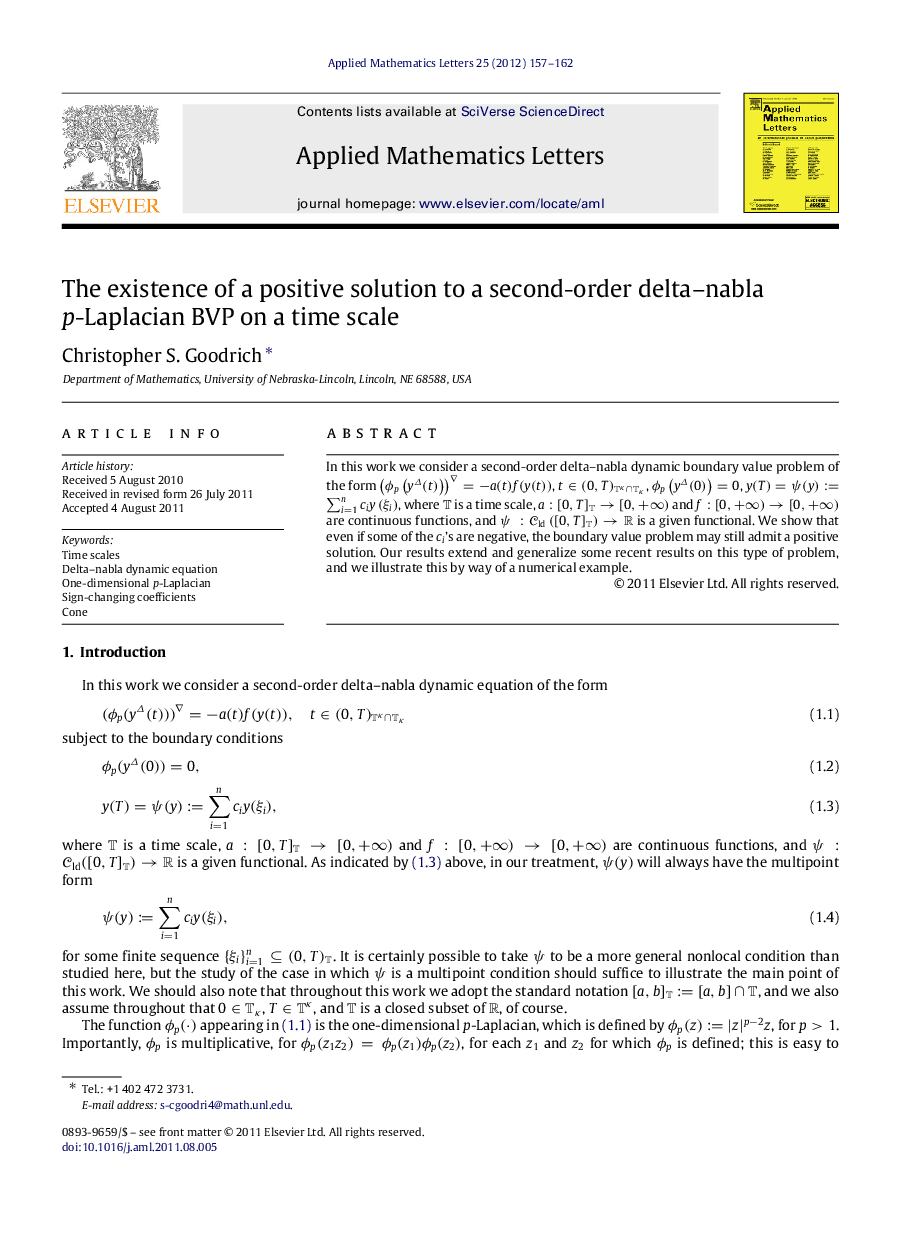| Article ID | Journal | Published Year | Pages | File Type |
|---|---|---|---|---|
| 1708135 | Applied Mathematics Letters | 2012 | 6 Pages |
Abstract
In this work we consider a second-order delta–nabla dynamic boundary value problem of the form (ϕp(yΔ(t)))∇=−a(t)f(y(t)), t∈(0,T)Tκ∩Tκ(ϕp(yΔ(t)))∇=−a(t)f(y(t)), t∈(0,T)Tκ∩Tκ, ϕp(yΔ(0))=0ϕp(yΔ(0))=0, y(T)=ψ(y):=∑i=1nciy(ξi), where TT is a time scale, a:[0,T]T→[0,+∞)a:[0,T]T→[0,+∞) and f:[0,+∞)→[0,+∞)f:[0,+∞)→[0,+∞) are continuous functions, and ψ:Cld([0,T]T)→R is a given functional. We show that even if some of the cici’s are negative, the boundary value problem may still admit a positive solution. Our results extend and generalize some recent results on this type of problem, and we illustrate this by way of a numerical example.
Related Topics
Physical Sciences and Engineering
Engineering
Computational Mechanics
Authors
Christopher S. Goodrich,
